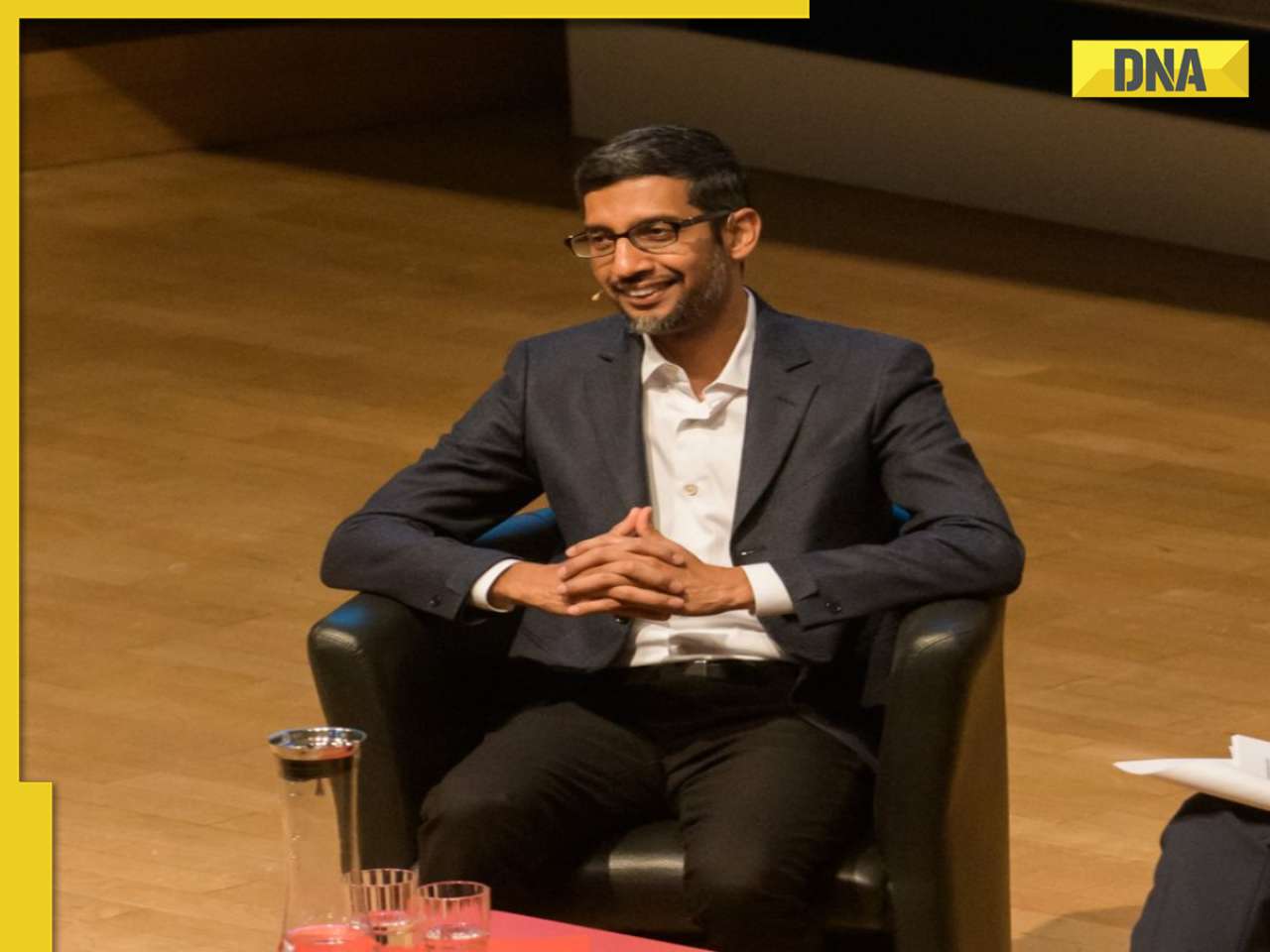As millennials have gotten into the driver’s seat, the consumer world is quickly shifting gears and moving from buying and owning tangible assets to sharing and renting the same.
The phenomenon of hailing a car of your choice has now extended to vacation rentals, and the renting of fashion & apparel, consumers durables and workspaces.
The rise of brands like Uber, Airbnb, Rent The Runway, WeWork, etc., has stimulated the sharing economy that allows today’s consumers--limited by money, resources, time and geography-- to attain temporary access to assets of their choice. With increased internet connectivity, smartphones and cloud, millennials can hunt down their desired assets with ease, transact seamlessly and ensure on-time delivery.
A neo-Indian professional is lesser glued to one location and smartly weighs the option of renting over buying, says Shubham Jain, CEO, GrabOnRent. In India, there are over 200 million internal migrants (Census 2011), a majority of who reside in rented accommodations and work in a market reeling under job insecurity. This primarily drives the behaviour to rent out other valuable products like furniture, consumer durables, apparel, jewellery, etc. Experts feel sharing/renting has also emerged as a lifestyle choice that gives consumers what they want without the investment of ownership.
Says brand expert Pavan Padaki, author of Brand Vinci: Decoding Facets of Branding, “The sharing economy is about to speed up to provide an experience which is convenient and cost-effective, powered by technology. It enables maximisation.”
According to Aditya Loomba, joint director, Eco Rent A Car, rental has become a way of life. “New-age consumers care about lower costs, instant access and flexibility and the idea of sharing an object seems more economical than owning.”
The tendency of millennials to disregard the idea of ownership is set to infuse a paradigm change in the workings of a brand, compelling brands to re-shape their services and offerings in order to thrive, feel experts.
To prosper in the sharing economy, says Loomba, brands will have to cater to those who prefer easy access over ownership. “Brands will need to primarily restructure their relationship with consumers by investing on positioning themselves correctly in order to get results. Their branding and marketing provisions should engage directly with useful consumer motivations,” says Loomba.
Sudeep Singh, chief evangelist and co-founder of collaborative workspace GoWork, says that in the future, brands that lend themselves to sharing will benefit the economy by reducing individual prices of goods, increasing demand (due to higher wear and tear) and simultaneously provide a complete experience to consumers.
Singh feels marketing strategies might change as instead of policies focused on wooing individuals, businesses would reach out to a group of consumers interested in sharing a common resource. "This can bring in more M&A opportunities for businesses who want to leverage on a shared economy without having to completely give up on their ownership model,” says Singh.
Another course of action for existing brands, say experts, may be to consider product-renting as a value-added service to their existing portfolio, like in case of brands like PepperFry, which have options for both buying or rentals (of furniture). “What will be worth noticing is how quickly businesses might witness a dent in their sales and thus shift momentum towards the needs of millennials who value flexibility over ownership,” says Jain.
But merely having a sharing option is not enough. Padaki says that brands will need innovative ways to offer personalised and unique experiences to differentiate themselves from the competition. “Consumers will be measuring, accepting or rejecting brands on metrics beyond product features or performance. A brand is judged on the kind of experience it delivers. To a consumer, the ‘’sharing’’ stops with the access to a product, as thereafter, the expectations for a personalised and superior user experience begins,” says Padaki. The user experience that a brand ultimately provides should be unique and not ‘’shared’’ by one and all.
TIME TO CO-OWN
- The phenomenon of hailing a car of your choice, be it in pool, has now extended to vacation rentals, and the renting of fashion & apparel, consumers durables and workspaces
- The rise of brands like Uber, Ola, Airbnb, Rent The Runway, WeWork, etc., has stimulated the sharing economy that allows today’s consumers—limited by money, resources, time and geography— to attain temporary access to assets of their choice
![submenu-img]() Meet man, an Indian, whose family topped list of richest people in the UK with net worth of...
Meet man, an Indian, whose family topped list of richest people in the UK with net worth of...![submenu-img]() Pune: Tanker explodes in Pimpri Chinchwad, nearby hotels, houses and parked trucks damaged
Pune: Tanker explodes in Pimpri Chinchwad, nearby hotels, houses and parked trucks damaged![submenu-img]() Rohit Sharma lashes out at IPL TV broadcaster for 'breach of privacy'
Rohit Sharma lashes out at IPL TV broadcaster for 'breach of privacy'![submenu-img]() Heeramandi lyricist AM Turaz on Azadi: 'Women's contribution in Indian freedom movement has never been...' | Exclusive
Heeramandi lyricist AM Turaz on Azadi: 'Women's contribution in Indian freedom movement has never been...' | Exclusive![submenu-img]() Kangana Ranaut reveals if she will quit films after winning Lok Sabha elections, calls Bollywood 'jhoothi duniya'
Kangana Ranaut reveals if she will quit films after winning Lok Sabha elections, calls Bollywood 'jhoothi duniya'![submenu-img]() Meet IAS officer, daughter of milk vendor, who cracked UPSC in second attempt, secured AIR...
Meet IAS officer, daughter of milk vendor, who cracked UPSC in second attempt, secured AIR...![submenu-img]() UGC NET June 2024: Registration window closes today; check how to apply
UGC NET June 2024: Registration window closes today; check how to apply![submenu-img]() Meet IAS officer, son of teacher from Rajasthan, who cracked UPSC after multiple failed attempts, secured AIR...
Meet IAS officer, son of teacher from Rajasthan, who cracked UPSC after multiple failed attempts, secured AIR...![submenu-img]() Meet IIT graduates, three friends who were featured in Forbes 30 Under 30 Asia list, built AI startup, now…
Meet IIT graduates, three friends who were featured in Forbes 30 Under 30 Asia list, built AI startup, now…![submenu-img]() Meet woman who cracked UPSC in fourth attempt to become IAS officer, secured AIR...
Meet woman who cracked UPSC in fourth attempt to become IAS officer, secured AIR...![submenu-img]() DNA Verified: Is CAA an anti-Muslim law? Centre terms news report as 'misleading'
DNA Verified: Is CAA an anti-Muslim law? Centre terms news report as 'misleading'![submenu-img]() DNA Verified: Lok Sabha Elections 2024 to be held on April 19? Know truth behind viral message
DNA Verified: Lok Sabha Elections 2024 to be held on April 19? Know truth behind viral message![submenu-img]() DNA Verified: Modi govt giving students free laptops under 'One Student One Laptop' scheme? Know truth here
DNA Verified: Modi govt giving students free laptops under 'One Student One Laptop' scheme? Know truth here![submenu-img]() DNA Verified: Shah Rukh Khan denies reports of his role in release of India's naval officers from Qatar
DNA Verified: Shah Rukh Khan denies reports of his role in release of India's naval officers from Qatar![submenu-img]() DNA Verified: Is govt providing Rs 1.6 lakh benefit to girls under PM Ladli Laxmi Yojana? Know truth
DNA Verified: Is govt providing Rs 1.6 lakh benefit to girls under PM Ladli Laxmi Yojana? Know truth![submenu-img]() Kiara Advani attends Women In Cinema Gala in dramatic ensemble, netizens say 'who designs these hideous dresses'
Kiara Advani attends Women In Cinema Gala in dramatic ensemble, netizens say 'who designs these hideous dresses'![submenu-img]() Influencer Diipa Büller-Khosla looks 'drop dead gorgeous' in metallic structured dress at Cannes 2024
Influencer Diipa Büller-Khosla looks 'drop dead gorgeous' in metallic structured dress at Cannes 2024![submenu-img]() Kiara Advani stuns in Prabal Gurung thigh-high slit gown for her Cannes debut, poses by the French Riviera
Kiara Advani stuns in Prabal Gurung thigh-high slit gown for her Cannes debut, poses by the French Riviera![submenu-img]() Heeramandi star Taha Shah Badussha makes dashing debut at Cannes Film Festival, fans call him ‘international crush’
Heeramandi star Taha Shah Badussha makes dashing debut at Cannes Film Festival, fans call him ‘international crush’![submenu-img]() Streaming This Week: Madgaon Express, Zara Hatke Zara Bachke, Bridgerton season 3, latest OTT releases to binge-watch
Streaming This Week: Madgaon Express, Zara Hatke Zara Bachke, Bridgerton season 3, latest OTT releases to binge-watch![submenu-img]() Haryana Political Crisis: Will 3 independent MLAs support withdrawal impact the present Nayab Saini led-BJP government?
Haryana Political Crisis: Will 3 independent MLAs support withdrawal impact the present Nayab Saini led-BJP government?![submenu-img]() DNA Explainer: Why Harvey Weinstein's rape conviction was overturned, will beleaguered Hollywood mogul get out of jail?
DNA Explainer: Why Harvey Weinstein's rape conviction was overturned, will beleaguered Hollywood mogul get out of jail?![submenu-img]() What is inheritance tax?
What is inheritance tax?![submenu-img]() DNA Explainer: What is cloud seeding which is blamed for wreaking havoc in Dubai?
DNA Explainer: What is cloud seeding which is blamed for wreaking havoc in Dubai?![submenu-img]() DNA Explainer: What is Israel's Arrow-3 defence system used to intercept Iran's missile attack?
DNA Explainer: What is Israel's Arrow-3 defence system used to intercept Iran's missile attack?![submenu-img]() Heeramandi lyricist AM Turaz on Azadi: 'Women's contribution in Indian freedom movement has never been...' | Exclusive
Heeramandi lyricist AM Turaz on Azadi: 'Women's contribution in Indian freedom movement has never been...' | Exclusive![submenu-img]() Kangana Ranaut reveals if she will quit films after winning Lok Sabha elections, calls Bollywood 'jhoothi duniya'
Kangana Ranaut reveals if she will quit films after winning Lok Sabha elections, calls Bollywood 'jhoothi duniya'![submenu-img]() Sanjay Leela Bhansali calls this actor his only friend in industry: 'He doesn't care about my film, he cares about me'
Sanjay Leela Bhansali calls this actor his only friend in industry: 'He doesn't care about my film, he cares about me'![submenu-img]() Jolly LLB 3: Akshay Kumar wraps up first schedule; local artiste reveals actor's inspiring daily habits
Jolly LLB 3: Akshay Kumar wraps up first schedule; local artiste reveals actor's inspiring daily habits![submenu-img]() Before Ranveer Singh, Deepika Padukone; Bajirao Mastani was announced with these two superstars in 70s, it got shelved
Before Ranveer Singh, Deepika Padukone; Bajirao Mastani was announced with these two superstars in 70s, it got shelved![submenu-img]() Viral video: Donkey stuns internet with unexpected victory over hyena, watch
Viral video: Donkey stuns internet with unexpected victory over hyena, watch![submenu-img]() Viral video: 'Breathtaking' blue meteor illuminates skies over Spain and Portugal, watch
Viral video: 'Breathtaking' blue meteor illuminates skies over Spain and Portugal, watch![submenu-img]() Google CEO Sundar Pichai reveals his favourite foods in Delhi, Mumbai, Bengaluru and they are...
Google CEO Sundar Pichai reveals his favourite foods in Delhi, Mumbai, Bengaluru and they are...![submenu-img]() Cow fight injures two girls enjoying street snacks, video goes viral
Cow fight injures two girls enjoying street snacks, video goes viral![submenu-img]() Viral video: Man sets up makeshift hammock on bus, internet reacts
Viral video: Man sets up makeshift hammock on bus, internet reacts







































)


















)
)
)
)
)
)